Shivering hands and red fingers gripped “STRIKE” signs as “No cuts!” chants rang throughout the bitter December air.
On Thursday morning, approximately 750 Washington Post staff members walked out of the newsroom hoping to solidify a deal with paper executives. The workers seek higher salaries, additional job security, and fewer future cuts.
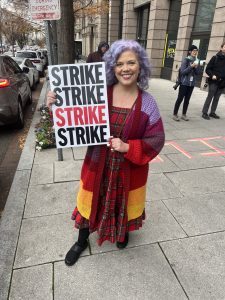
The last time the Washington Post Guild workers’ union organized a strike of this magnitude was in 1975. Forty-eight years have passed, and journalists are still dissatisfied with the trends they see in wealthy business people acquiring newspapers.
Gillian Brockell, a staff writer at the Post since 2013, said today’s air is filled with equal doses of anger and pride.
“We’re out here saying that we’re sick of billionaires buying companies and then tearing them to shreds,” she explained.
Several protest signs donned phrases directed at Jeff Bezos, the founder and CEO of Amazon, who bought the Washington Post in 2013.
One picketer hoisted a sign high into the air that read: “Jeffrey, you’re rich enough to pay us,” as some onlookers raised their fists in solidarity when passing the picket line.
Money, or the lack thereof, is at the root of today’s strike. In October, the Post’s CEO announced that almost 10% of all staff must either agree to a voluntary buyout or face involuntary layoffs.
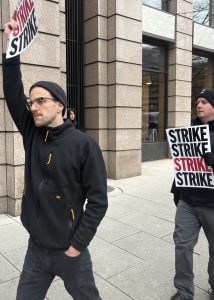
The paper is expected to lose around $100 million by the end of 2023, as its digital subscriptions dipped by over 500,000 in a year.
Hannah Good, a designer who curates comics and illustrations for the Post, said today’s strike affects the profession of journalism more broadly than just Post employees.
“None of us want to be here. We all want to be doing our jobs, because there are so many important stories to tell,” she said “We have so many people participating in the strike who cover international issues, wars, and civil issues. So, this affects us on the daily, not just with the strike, but because we can’t do our jobs as well when we’re distracted by just trying to pay our bills.”
Gillian Brockell also explained how the issues brought forth in today’s strike impact the D.C. communities that rely on the Post for stories they can trust.
“The Washington Post is trying to gut the local section. There was a Pew study saying that people of color trust local news reporters more than national news reporters, and there’s a huge population of people of color in this community that we are not helping because the company is not focused on it,” she said.
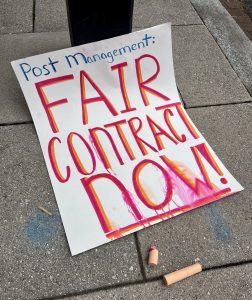
Jackson Barton, a breaking news video editor who has worked at the Post for nearly a year, said the day was all about solidarity, even from his editors tasked with running the newsroom today while their colleagues strike.
Editors at the Post do not belong to the Guild, as their contracts are different. Today, those editors will serve as reporters, editors, publishers, and more to keep the news flowing.
“The editors on my own team were supportive. None of them tried to dissuade me from participating today, and I think they were probably prepared for something like this,” Barton said.
Barton hopes that today’s strike will fit into a pattern of increased journalism labor union activity throughout the country.
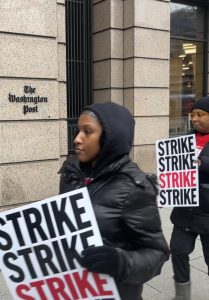
“This is a historically large walkout. Labor unions in the media have been on the decline but are starting to make a big resurgence in the last decade. I really think this is a watershed moment,” he said.
The walkout is planned for 24 hours, and the Post Guild has asked Post consumers to respect their picket line by avoiding all Post content for the duration of their strike.
Gillian Brockell feels hopeful that with today’s display of unity, change might come for the people of the Washington Post.
“The Post is amazing, and it’s amazing because of all of the people out here today. We are the ones who make the Washington Post what it is,” she said, looking admirably over at her fellow “Posties” marching together all at a different beat, for the same purpose.

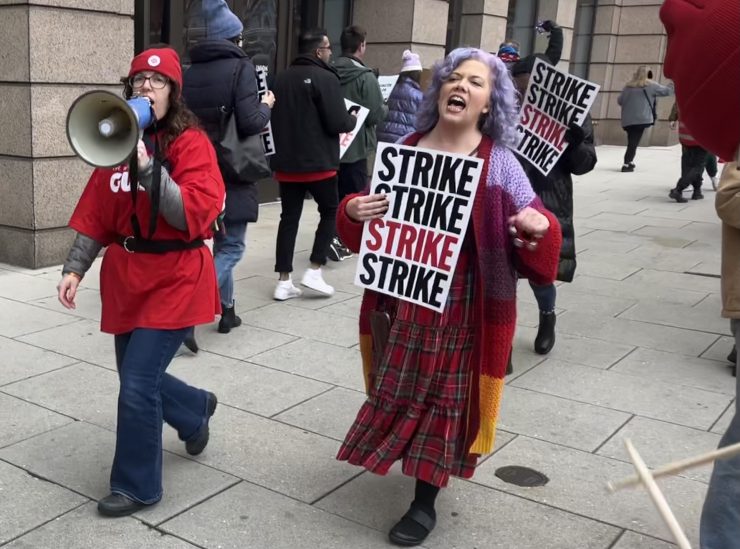
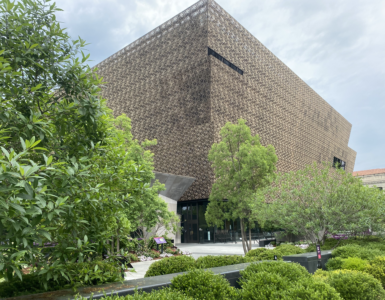
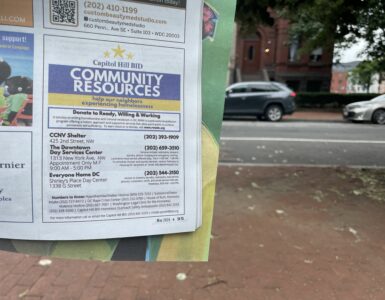











Add comment